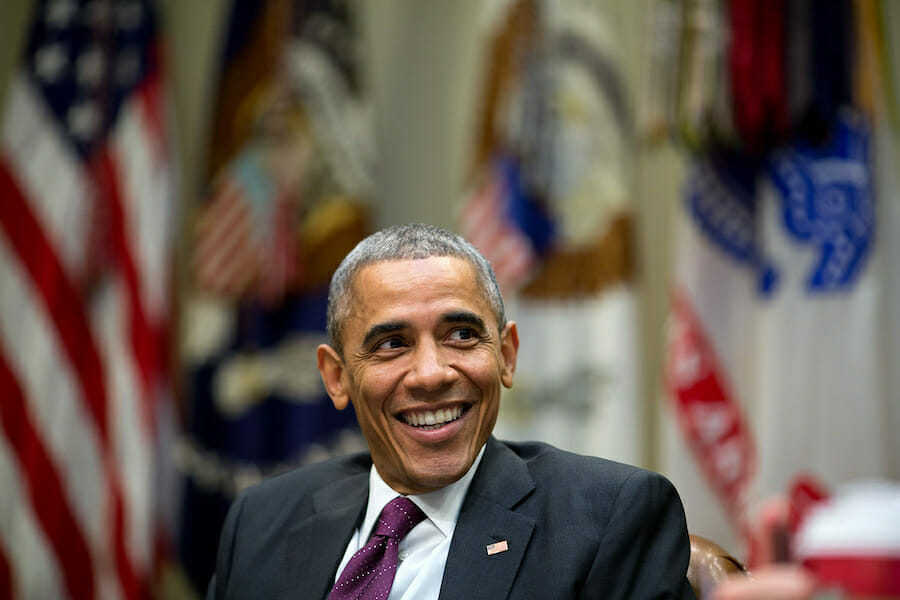
Overtime Protection, American Election and Democracy beyond Rhetoric
Amidst the white heat of the 2016 presidential campaigns, the Labor Department under the Obama administration issued a new regulation last week that will benefit an estimated 12.5 million salaried workers by raising the threshold of overtime protection from $23,660 to $47,476 a year.
This legislative change is hailed by many as a victory of Democrats’ consistent push for welfare enlargement and renaissance of the New Deal. Paul Krugman from the New York Times praised the new regulation as a successful medium-run fix to combat inequality and poverty, an enduring campaign fought by the “lame duck” president, given massive constraints in Congress.
It may be too early to celebrate.
There are legitimate reasons to worry about policy rollbacks and counter attacks. On the market side, benefits of expanded overtime protection can be easily offset by aggressive business practices of intentional wage increases just over the threshold and systematic layoffs. More importantly, welfare for the poor and middle classes can be endangered by political roadblocks.
Politically the viability of welfare gains for the working class hinges upon the result of the upcoming presidential election. In accordance with the Republican establishment, the party’s presumptive nominee, Donald Trump has proposed tax cuts and corporate welfare (instead of public welfare) on multiple occasions. In spite of being characterized as a party outsider, Trump is, in his own strongman style, engaging the Republican norm. That is conveniently replacing the word “profit” with “jobs” and promising domestic business expansion as a whole-package panacea to the dwindling economy and unhappy workers. His campaign of “Make America Great Again” is appealing to more Americans than traditional polls suggested.
May Trump successfully capture the support of ethnocentric white Democrats, Republicans and Independents who are otherwise reluctant to admit their choice in polls, plus his loyal base of white-working-class provincials, he has a real chance of winning the election and rolling back welfare policies, with the aid of congressional Republican who are increasingly united around the nominee as the general election nears.
The Trump phenomenon and its possible consequence on the welfare prospects of ordinary Americans must be understood in a broader context of our country’s shifting political climate in terms of voting patterns and government spending. According to a New York Times analysis by Akec MacGillis, there is an observed pattern of “blue states turning red” on account of voters from previously Democrats-dominated poorer states increasingly voting against safety-net programs they depend on and thus voting for an anti-welfare Republican government. Such behavior is further considered as rational since “these voters are consciously opting against a Democratic economic agenda that they see as bad for them and good for other people — specifically, those undeserving benefit-recipients who live nearby.”
In abstract terms, this pattern confirms Noam Chomsky’s deduction that elections nowadays are more “vote against” than “vote for.” In-group resentment seems to dominate political attitudes so much so that many low-income partisans are de facto voting against their own interests. The resentment also conceals a larger fact that government spending on welfare for the poor is disproportionately outranked by spending on military defense, the part of tax redistributed away from the needy and vulnerable. Nationwide, low voter participation among poorest Americans adds to mounting obstacles faced by welfare policy proponents.
In essence, the wax and wane of welfare policies respond to changing political undercurrents of our time and speak to a more metaphysical discourse on democracy. Who we will elect to lead our country, to a large extent, reflects our expectations for what a functioning, just democratic system can offer. While the enduring truths of democracy, as Chomsky calls them, unambiguously promise freedom and opportunity for all, the routes to achieve said goals are yet contested.
Do we as free individuals exercise the sacred right of “one person, one vote” to ensure a perceived private sphere of self-interest, or should we bear in mind solidarity, and sentimental concerns for others and the society as a whole? What will democracy look like if we each elect to fend for ourselves and dismiss other relevant, circumstantial facts en route? Having puzzled classic thinkers such as Adam Smith, these questions of utility vs. morality permeate through today’s political battles and deserve some serious thinking as much as, if not more than, our focus on individual policy options.

